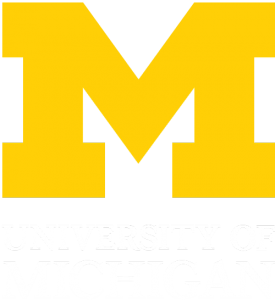Research Scientist Enrichment Program
Accepting Applications for 2024-2025 AD-RCMAR Research Scientist Enrichment Program!
The Michigan Center for Contextual Factors in Alzheimer’s Disease (MCCFAD), a National Institute on Aging funded Alzheimer’s disease-related Resource Center for Minority Aging Research (AD-RCMAR), announces a research career enrichment program involving seminar participation and mentoring in AD-relevant research. One of the Center’s major goals is to enhance the diversity of the aging research workforce by identifying and mentoring scientists from and/or with interest in underrepresented groups who can advance research on AD and related dementias (ADRD). We invite applications from those interested in enhancing their knowledge of contextual factors in ADRD. Funds are available for investigator-initiated research projects that support the development of independent NIH-funded projects. Proposals with high likelihood of advancing research on ADRD disparities, especially among Middle Eastern and North African/Arab Americans and Hispanic/Latinos, are particularly encouraged.
Eligibility and Requirements
- Investigators must come from an under-represented group as defined by the National Institute of Health, including racial/ethnic minorities, first-generation college students, socioeconomically disadvantaged backgrounds or persons with disabilities, AND/OR demonstrate a sustained interest in advancing scientific research on the health of under-represented group(s).
- Investigators must be in a postdoctoral or faculty (including non-tenure track) position.
- Investigators must be either:
- in an early-career stage, defined as pre-tenure and no previous R01 (or equivalent) level funding;
- in a mid-career stage and propose a project that reflects a clear transition into ADRD or ADRD disparities research.
- Proposals should focus on one of MCCFAD’s core areas: epidemiology, culturally- sensitive care, health economics.
- Proposals should be able to be completed within one year as well as support at least one peer-reviewed publication and the preparation of a NIH grant application.
- Funded investigators are expected to commit to participating in all career enrichment activities, including the formation of an integrative mentorship team, monthly seminars, regular progress reports, Gerontological Society of America Conference, Resource Centers for Minority Aging Research annual meeting, and the Summer Data Immersion Program at the University of Michigan.
Resources Available
- Access to monthly mentoring with experts in the fields of epidemiology, culturally- sensitive care, health economics, and minority aging.
- Group and one-on-one advising in theory, research design, methods and analysis related to pilot project activities.
- Funding for up to $30,000 in total costs (maximum of 8% allocated to indirect costs) for a relevant research proposal, pending NIA approval. Funds cannot be used to support senior faculty salaries or to purchase equipment. [Studies involving the use of human or animal subjects must be approved by the appropriate review board at your institution prior to the release of funds].
- Guidance in the development of independent NIH-funded projects.
- Advanced training in ADRD secondary data utilization through the Summer Data Immersion program.
How to Apply:
Applicants should prepare (in Arial 11-point font or larger, no less than .5-inch margins):
- NIH biosketch (up to 5 pages)
- Scientist disclosure statement indicating prior, or no prior, funding with the RCMAR or AD/ADRD RCMAR program. For Scientists with a history of prior RCMAR or AD/ADRD RCMAR pilot funding, the name of the RCMAR or AD/ADRD RCMAR and members of the RCMAR or AD/ADRD RCMAR mentorship team must be provided along with the project dates and a justification for why additional pilot funding support is needed
- 2-page Project Summary/Abstract that provides a succinct and accurate description of the proposed work and includes the following elements:
- the project’s broad, long-term objectives,
- specific aims, and a
- description of the research design and methods.
- A 1-page Project Narrative that addresses the following questions:
- How will the pilot project contribute to the two-fold goal of the AD/ADRD RCMAR program
- How is the proposed pilot study: relevant to social, behavioral, psychological, and/or economic research on AD/ADRD, and in alignment with the 2019 NACA BSR Review Committee Report, and the Scientist’s research career objectives?
- How will the findings from the pilot study contribute to the submission of an NIA research grant application to a target FOA?
- Cited Literature
- Detailed Budget
- IDC Checklist
- Budget Justification
- The name and contact information for at least one reference.
Applicants are encouraged to email [email protected] with questions. Completed applications should be emailed as a single pdf attachment to [email protected] by January 19, 2024. Applicants will be notified by March 1, 2024. Funding is expected to begin July 1, 2024.

